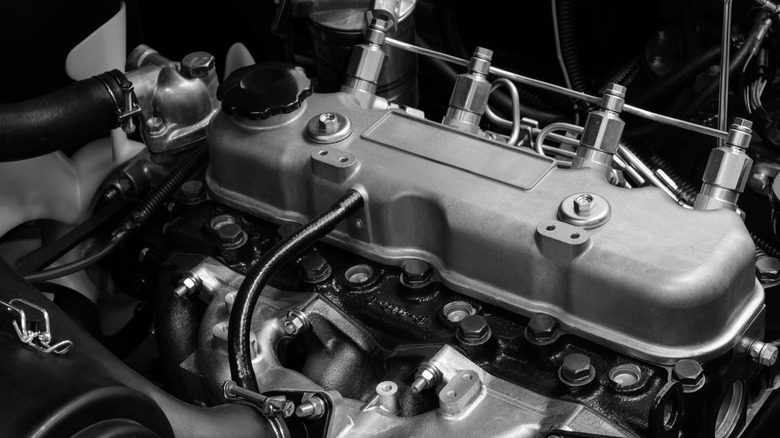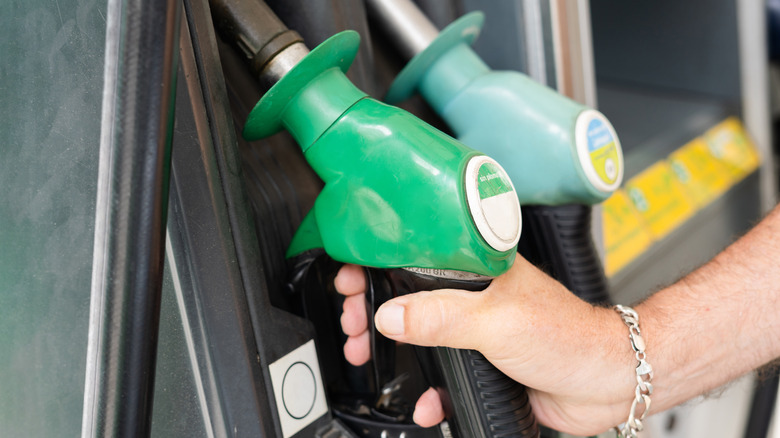What The Knocking Sound Coming From Your Diesel Engine May Be (And If You Can Fix It)
Sound coming from your engine bay is typically very normal, as it means the engine is working and providing power to help move your vehicle. Most drivers have an idea of what their vehicle should sound like, as they drive it nearly every single day. When that familiar sound begins to evolve into a worrisome engine noise, it means you'll likely be spending a decent amount of money to fix it.
For diesel engines specifically, they tend to be much louder than gasoline-powered engines anyway, so it may not be as easy to hear the sound of the engine knocking when it happens. There are a few different types of knocking sounds that can occur, including a rattling sound, a ticking noise, and a knocking noise. Each of those three sounds can mean a number of things, but the first is that you need to either fix your engine yourself or bring it to a mechanic.
If you hear a knocking sound coming from your diesel engine, the most likely culprit is the fuel injectors. If the fuel injectors are not properly lubricated, they can mistime the fuel releases with the up and down motion of the pistons. This, in turn, has the possibility to result in a loud knocking sound.
How to fix your engine's knocking sound
The first thing you need to do, if you hear noise coming from your engine, is to determine what type of sound it is. If the sound you hear is a knocking noise, that should be an easy fix. All you need to do is install new fuel injectors. That is, however, a moderately difficult mechanical procedure, and it's recommended you bring your vehicle to a mechanic if your engine is making a knocking noise.
If there is rattling noise coming from your diesel engine, the most likely culprit is that you're using the wrong type of fuel. Possibly the easiest fix of all, just make sure you fill up with the correct fuel type next time. A ticking noise from your diesel engine most likely means that you're running low on oil, and some engine components aren't being properly lubricated. Another easy fix, all you need to do is get an oil change. However, the ticking noise could also be a faulty connecting rod, which would require a complete engine rebuild.
Another awful noise you can hear is from your timing chain, which usually only makes noise when it is loose. However, if you leave this issue for too long, the timing chain can rip off, causing serious damage to your engine.
How are gasoline and diesel engines different?
In their most basic forms, gasoline and diesel engines accomplish the same thing, they use internal combustion to create power to move a vehicle. The biggest difference between the two engines comes down to their components and fuel. Gasoline-powered engines use spark plugs to ignite the fuel during the combustion process, while diesel engines do not have spark plugs, they simply generate enough heat on their own, through compression, for the combustion process.
For most people, a gasoline engine is the preferred type for their vehicle. Gasoline is more often cheaper than diesel fuel at gas stations, and diesel fuel typically has a bad environmental impact, although the discussion about whether diesel or gasoline pollutes more is complicated. However, diesel engines are also more durable compared to gasoline engines, since they have fewer parts.
Although diesel fuel has a more negative environmental impact, diesel fuel also gives vehicles better fuel economy estimates than comparable gasoline vehicles. The difference in savings only becomes significant for drivers who travel more than 10,000 miles per year.


